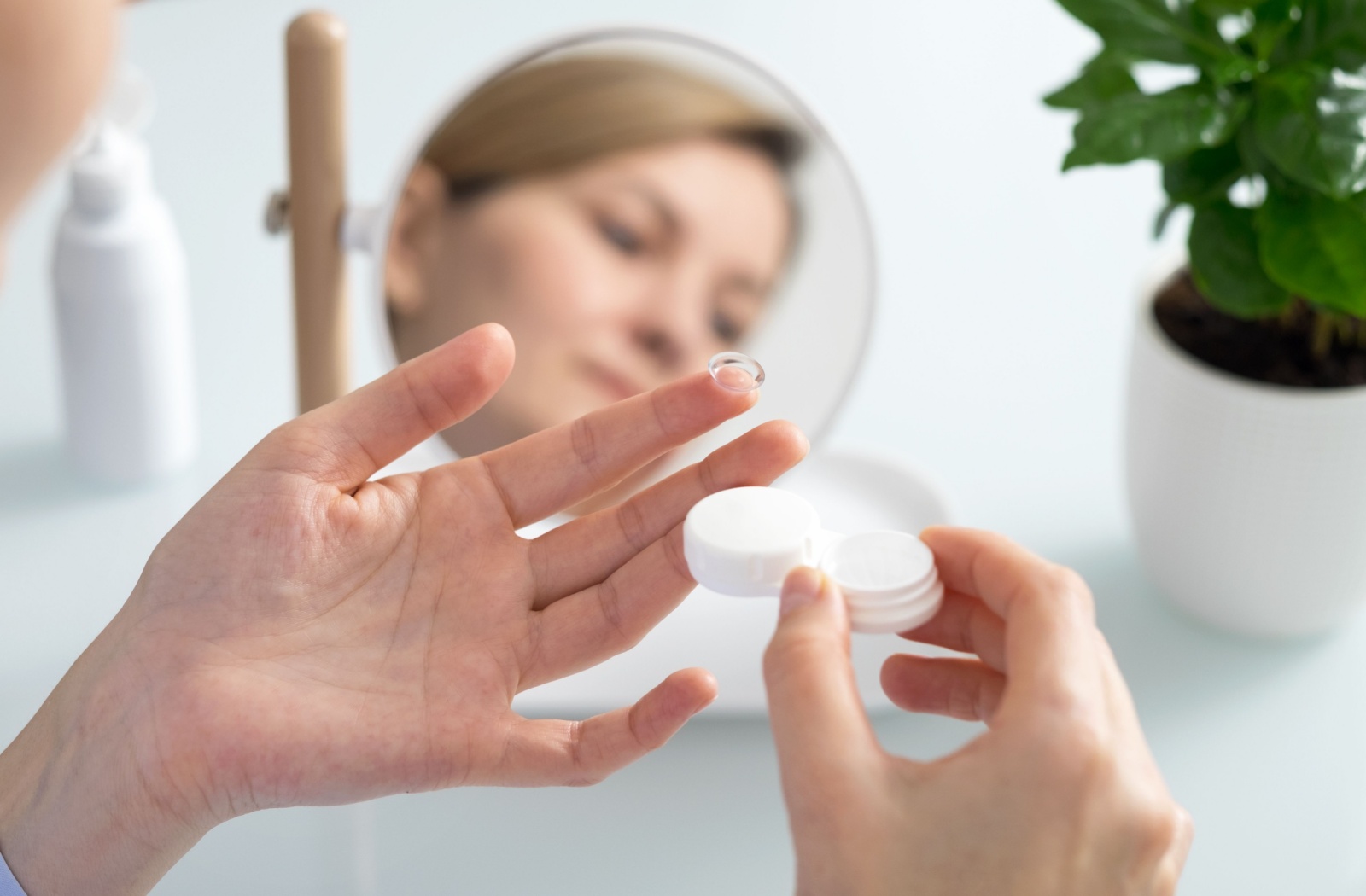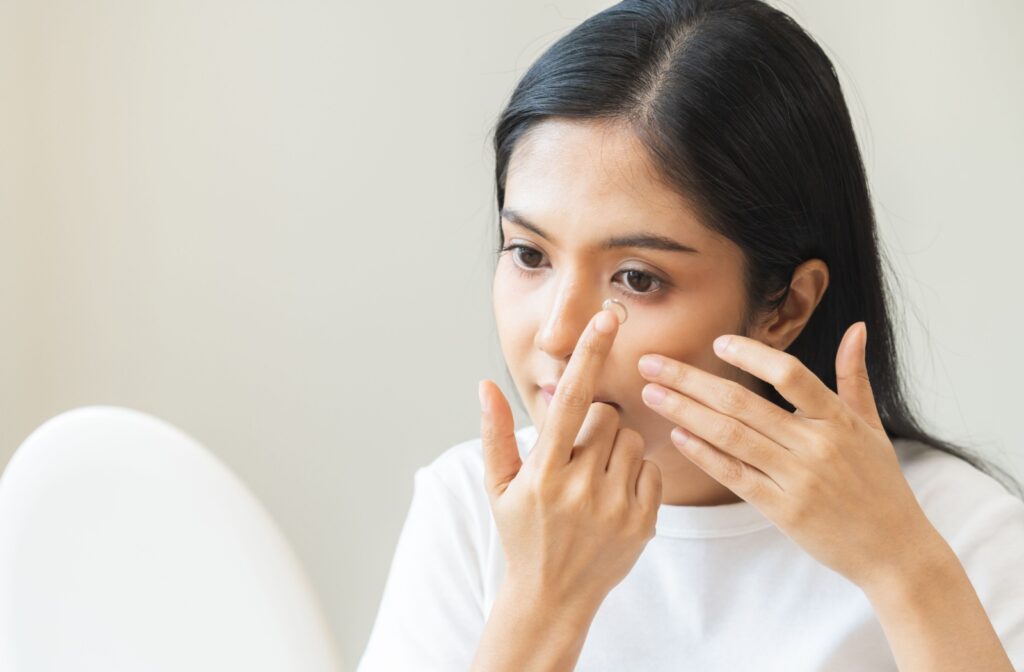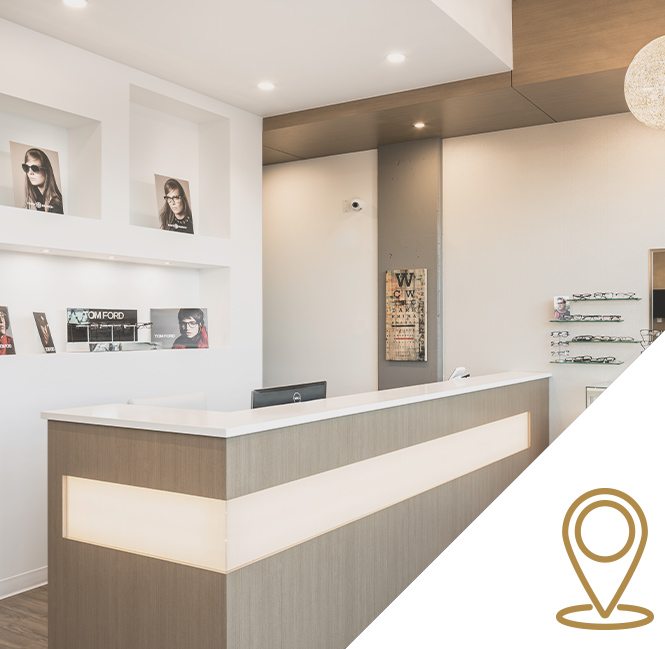Ever had that unsettling feeling that your contact lens might still be in your eye, even though you can’t feel it? Ever you ever wondered how you can actually tell whether it’s still there?
When a contact lens is still in your eye, you may experience blurry vision and a dry, scratchy sensation in your eye.
If you are unable to locate the lens, or if discomfort persists, it is advisable to seek help from your eye care provider as soon as possible.
What to do If You Forget to Take Out Your Contact Lenses
Forgot to take out your lenses? It happens. If you realize you’ve left them in, don’t panic.
First, assess how your eyes are feeling. Do they feel dry or irritated? Are you experiencing blurry vision?
If you suspect your lenses are still in your eyes, wash your hands thoroughly and gently check your eye. Look in a mirror and try to spot the lens. Sometimes, blinking a few times or using rewetting drops can help dislodge the lens.
If you can’t find the contact or if discomfort persists, visit your optometrist for assistance.
Never Sleep in Your Contact Lenses
One of the golden rules for contact lens wearers is to never sleep in your lenses unless they are specifically designed for overnight wear. Sleeping in lenses can lead to dry eyes and increase your risk of an eye infection by up to 8 times. When your eyes are closed for long periods, less oxygen reaches the cornea, which can harm your eye health if you’re wearing contacts.
Signs you may have slept in your lenses:
- Irritation
- Redness
- A gritty feeling in your eye
Make it a habit to remove your lenses before catching some Z’s, and your eyes will thank you.
Other Contact Lens Safety Tips
Here are a few more pointers to keep your eyes and contact lenses in tip-top shape:
- Always wash your hands before handling your lenses to avoid transferring dirt and bacteria
- Use fresh lens solution every time you store your contacts
- Never rinse or store your contacts in water; use a sterile solution to keep them sanitized
Proper care of your contact lenses can prevent many potential issues down the line.
Contact Lenses & Makeup
Getting glammed up? Mixing contact lenses and makeup requires some extra care:
- Insert your lenses before applying makeup to avoid getting makeup particles on your lenses
- Use hypoallergenic and water-based makeup products
- Avoid applying eyeliner to the inner eyelid, as this can irritate your eyes and contaminate your lenses
- Remove your lenses before taking off your makeup to keep them clean and safe
Contact Lens Hygiene

Good eye hygiene is non-negotiable for contact lens wearers. Here’s how to maintain it:
- Clean your lenses properly with the contact lens solution recommended by your optometrist
- Replace your lens case every 3 months to avoid bacterial buildup (for long-wear lenses)
- Follow the replacement schedule for your lenses—don’t overwear them
Keeping your lenses hygienic helps your comfort and the health of your eyes.
Types of Contact Lenses Soft vs. RGP
There are several different types of contact lenses. Two of these types include soft lenses and rigid gas-permeable (RGP) lenses:
- Soft lenses are made from hydrogels that allow oxygen to pass through to the cornea. They are comfortable and great for daily wear.
- RGP lenses can provide sharper vision and are considered more durable, but may take longer to get used to.
Both types have their pros and cons, so consult with your eye doctor to determine which fits your lifestyle and vision needs.
Wearing Costume Lenses & Safety
Thinking of adding some flair to your look with costume lenses? These can be fun but come with their own set of precautions:
- Only buy costume lenses from reputable sources to ensure that they are safe and approved by health authorities
- Follow the same hygiene practices as you would with regular lenses
- Never share lenses with another person
- Costume lenses should be treated with the same care as any other contact lenses to avoid any potential eye infections or complications
How to Tell If Contact Lenses Are Right for You
Wondering if contacts are the right choice for you?
- Lifestyle: If you lead an active lifestyle, contact lenses might offer you convenience
- Comfort: Some people find glasses uncomfortable or inconvenient, others find contact lenses uncomfortable
- Vision Needs: Contacts can provide better peripheral vision and are suitable for certain prescriptions
Discuss these factors with your eye care professional to make an informed decision about whether contact lenses are suitable for you.
Contact Lenses vs. Glasses
Choosing between contact lenses and glasses depends on personal preference and lifestyle:
- Contacts can offer a natural field of view and freedom from glasses on your face
- Glasses are convenient, require less maintenance, and can make a fashion statement
Weigh the pros and cons based on your daily activities and comfort to decide which option works best for you.
Seek Assistance If You’re Worried a Contact Lens Might Be in Your Eye
Understanding how to tell if a contact lens is still in your eye is crucial for all contact lens wearers. By following proper safety tips, maintaining good hygiene, and consulting with professionals, you can ensure a comfortable and healthy experience with your lenses.
If you’re unsure whether or not you still have a contact lens in your eye, talk to Willoughby Doctors of Optometry to be sure. It’s better to be safe than sorry.











